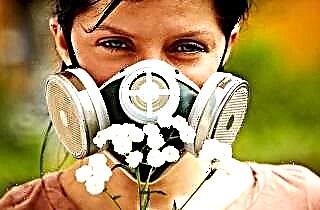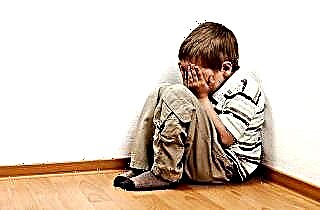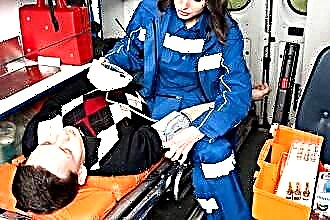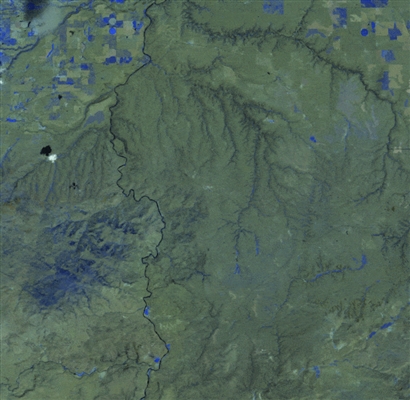Almost every cold is accompanied by a dry or wet cough. There is absolutely nothing surprising or unusual in this. But when a person begins to cough, and there is not even a hint of a cold, this may indicate health problems that have yet to be clarified. Determines what caused the cough without a cold, solely by the doctor. Such a symptom can be triggered by diseases of the respiratory system, heart, blood vessels and gastrointestinal tract. You can eliminate it by getting rid of the ailment that caused it.
Why do adults cough
 In addition to annoying coughing, a person may experience heartburn, chest pain, shortness of breath and shortness of breath. But also additional symptoms may not be at all. Usually, a cough without signs of a cold signals that:
In addition to annoying coughing, a person may experience heartburn, chest pain, shortness of breath and shortness of breath. But also additional symptoms may not be at all. Usually, a cough without signs of a cold signals that:
- any disease is latent;
- the development of the disease is in the incubation stage;
- there is a negative effect on the body of external factors (dirty or too dry air).
There are several reasons for dry cough in adults. This can manifest itself as an allergy or something more serious - whooping cough and tuberculosis. Only finding out the exact cause will make it possible to establish a diagnosis in a timely manner and begin effective treatment.
Let's take a closer look at what most often provokes dry cough in adults.
- Whooping cough. With this disease, the cough is paroxysmal, debilitating and barking. The ailment begins with general weakness, low-grade fever and dry cough. After some time, a noticeable deterioration occurs, the person coughs until exhaustion. Prolonged attacks occur mainly at night. It is recommended to treat whooping cough in a hospital under the constant supervision of a doctor. Home treatment, especially unauthorized treatment, is fraught with serious complications. It should be noted that in adults this disease is easier than in children - without severe breathing disorders.
 Allergy. One of the most common culprits for dry cough. It appears when a certain irritant - an allergen - enters the respiratory system. Most often, with allergies, a person coughs in the morning. The symptom is aggravated by direct contact with an irritant - the use of citrus fruits, the use of household chemicals for cleaning. If the allergen is eliminated, the cough will disappear. With constant contact with it, the airways narrow and the person coughs. The main danger of allergies is that it can eventually turn into obstructive bronchitis or bronchial asthma.
Allergy. One of the most common culprits for dry cough. It appears when a certain irritant - an allergen - enters the respiratory system. Most often, with allergies, a person coughs in the morning. The symptom is aggravated by direct contact with an irritant - the use of citrus fruits, the use of household chemicals for cleaning. If the allergen is eliminated, the cough will disappear. With constant contact with it, the airways narrow and the person coughs. The main danger of allergies is that it can eventually turn into obstructive bronchitis or bronchial asthma.- Foreign body in the respiratory system. This reason ranks second in prevalence and, probably, first in danger. If any foreign body is stuck in the airways, a sharp and painful cough begins. In this case, breathing is significantly complicated. In such a situation, you need to urgently call an ambulance and try to provide the victim with first aid.
- Side effect of taking medications. If a person does not have a cold, but coughs, this may indicate an individual reaction to any substance - the so-called hypersensitivity. By examining the list of side effects of a number of drugs, you can see there the risk of unproductive chronic cough. This side effect is typical for:
 ACE inhibitors;
ACE inhibitors;- drugs for hypertension;
- aspirin;
- aspirin;
- means for inhalation.
If it turns out that the cough has appeared as a reaction of the body to taking the drug, you must inform your doctor about it. In this case, he must correct his prescription and change the medication. Everyone's body is different, so medicines are selected on a strictly individual basis.
- Mental disorders and stress. Excessive excitement can also cause coughing. If the cause is truly psychogenic, antitussive drugs will not help. Even those that block the cough center in the brain will be powerless. In this case, it is necessary to consult with a neurologist or psychotherapist.
Where does dry cough in children come from?
A dry (aka unproductive) cough brings significant discomfort to the baby. Often, parents find that their child coughs mostly at night. If there are no symptoms of a cold, it is almost impossible to find out its cause on your own. But the effectiveness of treatment and the speed of the onset of recovery depend on it.
An unproductive cough in a child, which appears, as they say, out of the blue, may indicate both the development of pathology and the impact of unfavorable external factors.
 Let's list the main reasons for its occurrence in a baby:
Let's list the main reasons for its occurrence in a baby:
- Influence of external irritants on the respiratory tract: dry air, strong odors of household chemicals, perfumes, houseplants, cigarette smoke.
- Gastroesophageal reflux. With this pathology, the contents of the stomach are periodically thrown into the esophagus. As a result, the child experiences bouts of vomiting and coughing.
- Measles.
- Pleurisy.
- Physiological factor. In newborns, during the first year of their life, there is a gradual cleansing of the respiratory tract from the accumulation of dust and mucus deposited there. Thus, the baby can occasionally cough. Most often, the baby coughs in the morning. With a physiological cough, no other symptoms (fever, runny nose, and so on) should be observed.
Causes of baby wet cough
If a child has been coughing for a long time, and the severity of the symptom increases at night, you should immediately consult a doctor. A wet cough can also be dangerous. Therefore, its cause must be found out as soon as possible. Let's consider the most common ones.
 Allergy to household dust, drugs, certain plants or pets. It begins with a dry cough, which becomes wet over time. Often, therefore, a formidable complication develops - bronchial asthma. The child has significant breathing difficulties. This condition must be treated immediately.
Allergy to household dust, drugs, certain plants or pets. It begins with a dry cough, which becomes wet over time. Often, therefore, a formidable complication develops - bronchial asthma. The child has significant breathing difficulties. This condition must be treated immediately.- Whooping cough is characterized by a prolonged, moist cough without fever or other signs of a cold. The child's condition worsens, usually at night. With this ailment, not only the respiratory tract is affected, but also the nervous system.
- Tuberculosis. This disease can be suspected if the child coughs frequently and for quite a long time, as well as with the release of a significant amount of sputum. At the same time, there are no signs of a cold.
- Disorders in the work of the digestive system. In the presence of problems of this kind, food particles enter the respiratory tract, as a result of which the baby suffers from periodic bouts of wet coughing.
- Worms. Some of their varieties are capable of provoking a wet cough. They choose the respiratory organs as a habitat, as a result of which the bronchi and lungs are irritated. The body's reaction is quite understandable and expected - a wet cough with an abundance of phlegm.
 Psychological factor. A wet cough can appear after experiencing severe stress or intense excitement. At night, the child's condition stabilizes, and during the day this symptom reminds of itself again. To get rid of it, you will need qualified help from a pediatric neurologist or psychologist.
Psychological factor. A wet cough can appear after experiencing severe stress or intense excitement. At night, the child's condition stabilizes, and during the day this symptom reminds of itself again. To get rid of it, you will need qualified help from a pediatric neurologist or psychologist.- Foreign body in the respiratory tract. Kids actively explore the world around them. They are usually not limited to touch, sight and smell. Some items they really want to taste.However, what they try to put in their mouths is not always meant to be eaten. It sometimes happens that small elements, when trying to swallow them, get stuck in the respiratory organs. The child begins to cough violently, and he stops only when the foreign body is removed.
- Low air humidity. Excessively dry air irritates the respiratory tract. The result is a wet cough. To eliminate it, it is necessary to periodically ventilate the room where the baby sleeps and plays.
Post factum
 A cough without any other accompanying symptoms suggesting a cold is dangerous. After all, this means that there is some problem in the body that cannot be determined "by eye". For the treatment to be effective, it is necessary to find out the exact cause of this pathological reflex.
A cough without any other accompanying symptoms suggesting a cold is dangerous. After all, this means that there is some problem in the body that cannot be determined "by eye". For the treatment to be effective, it is necessary to find out the exact cause of this pathological reflex.
The elimination of only one symptom will do nothing - after a while it will return again. To finally get rid of it, you should consult a doctor, pass all the necessary tests, be examined, get a diagnosis and start adequate treatment.
Of course, if you know for sure that you started coughing due to allergies, dirty or dry air, you don't need to run to the doctor. In order to remove the allergen and increase the level of humidity in the air, no consultation is needed.
However, if you feel pain, your cough lasts more than 14 days, and your sputum contains blood, you should see your doctor right away.

 Allergy. One of the most common culprits for dry cough. It appears when a certain irritant - an allergen - enters the respiratory system. Most often, with allergies, a person coughs in the morning. The symptom is aggravated by direct contact with an irritant - the use of citrus fruits, the use of household chemicals for cleaning. If the allergen is eliminated, the cough will disappear. With constant contact with it, the airways narrow and the person coughs. The main danger of allergies is that it can eventually turn into obstructive bronchitis or bronchial asthma.
Allergy. One of the most common culprits for dry cough. It appears when a certain irritant - an allergen - enters the respiratory system. Most often, with allergies, a person coughs in the morning. The symptom is aggravated by direct contact with an irritant - the use of citrus fruits, the use of household chemicals for cleaning. If the allergen is eliminated, the cough will disappear. With constant contact with it, the airways narrow and the person coughs. The main danger of allergies is that it can eventually turn into obstructive bronchitis or bronchial asthma. ACE inhibitors;
ACE inhibitors; Allergy to household dust, drugs, certain plants or pets. It begins with a dry cough, which becomes wet over time. Often, therefore, a formidable complication develops - bronchial asthma. The child has significant breathing difficulties. This condition must be treated immediately.
Allergy to household dust, drugs, certain plants or pets. It begins with a dry cough, which becomes wet over time. Often, therefore, a formidable complication develops - bronchial asthma. The child has significant breathing difficulties. This condition must be treated immediately. Psychological factor. A wet cough can appear after experiencing severe stress or intense excitement. At night, the child's condition stabilizes, and during the day this symptom reminds of itself again. To get rid of it, you will need qualified help from a pediatric neurologist or psychologist.
Psychological factor. A wet cough can appear after experiencing severe stress or intense excitement. At night, the child's condition stabilizes, and during the day this symptom reminds of itself again. To get rid of it, you will need qualified help from a pediatric neurologist or psychologist.

